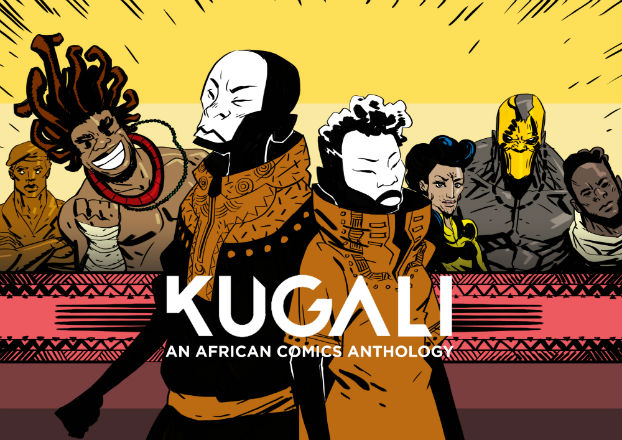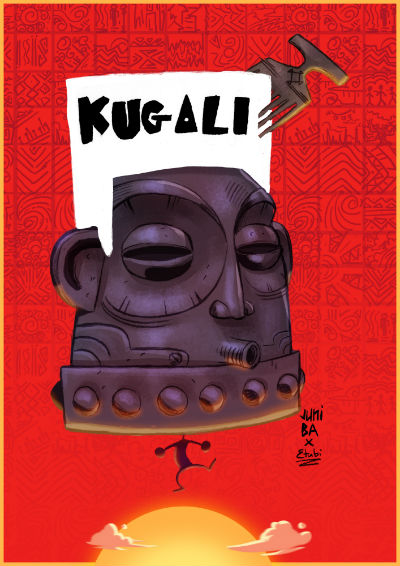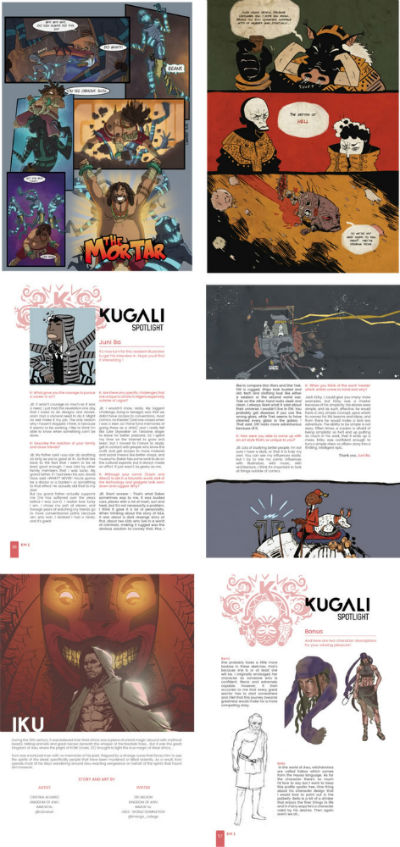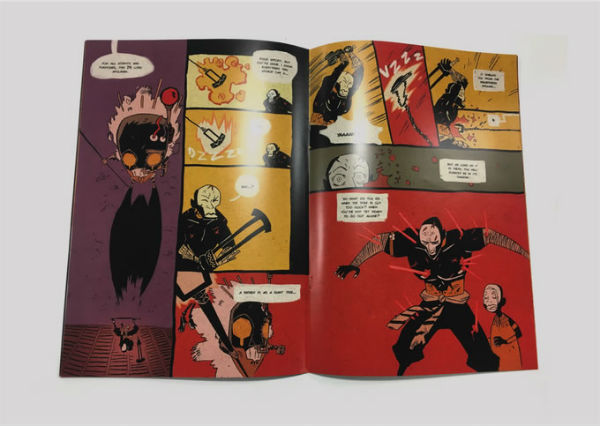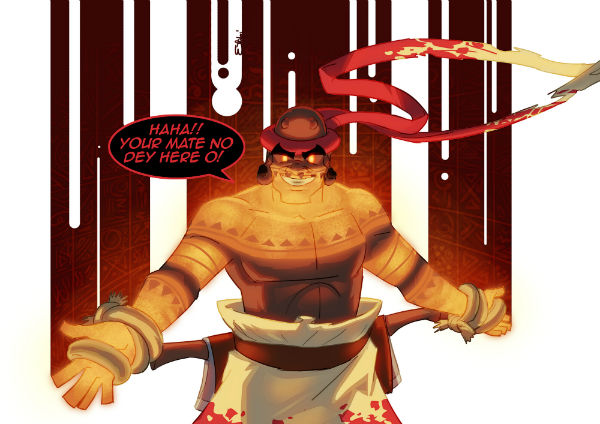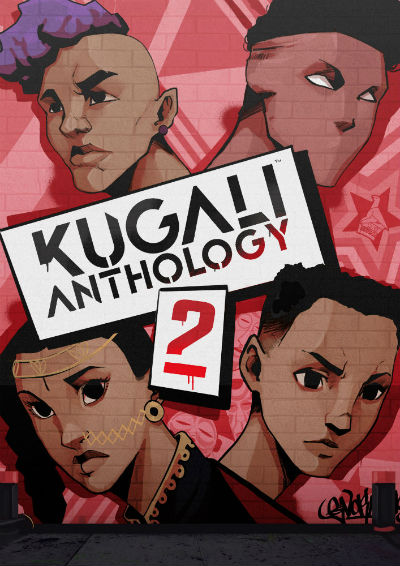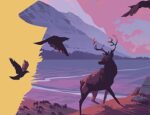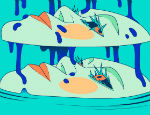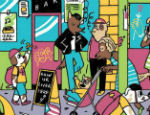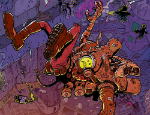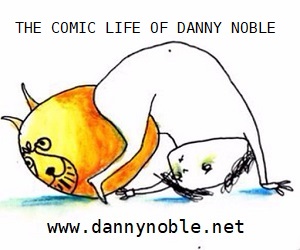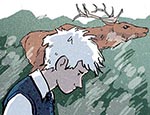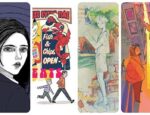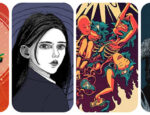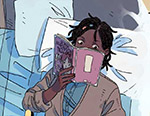Kugali comics first came to my attention at CECAF earlier this year, where I had the pleasure of meeting Ziki Nelson. The founder of Kugali – a new comics anthology bringing together creators from all across the African continent – Ziki brought a truly unique offering to the table. I snapped up both Kugali magazines (the all-ages comics are understandably kept separate from the ‘Raki edition’ collecting darker stories with adult content), and devoured their stories of undead warriors, cursed bloodlines, political uprisings and high-tech heroes. Eager to find out more about the origins of Kugali and what the collective has in store for us next, I caught up with Ziki to ask the burning questions you’ll find answered below…
BROKEN FRONTIER: How did Kugali get started? What inspired you to use comics as the medium for telling these stories?
ZIKI NELSON: I’ve always been interested in storytelling, and comics allow you to combine the written word with visual storytelling. For me personally, this is a marriage made in heaven. However, as a storyteller, I was struggling to come up with new ideas that weren’t just mere imitations of stories I’d read before. I was visiting my Dad in Nigeria in 2013 when I discovered a book about West African myths and legends, and that’s when it hit me! Why not draw from my own culture and heritage, since hardly anyone else seems to be doing it? A few years later I reached out to my co-founder Tolu [Foyeh], and slowly but surely we found ourselves diving deeper and deeper into the African comic book community.
BF: Where does the name Kugali come from?
NELSON: Kugali was coined from a Swahili phrase, ‘A-Kujali’, meaning ‘something that matters’, which perfectly summarises how I and the rest of my team members feel about this project.
BF: How do you find the artists and writers you feature?
NELSON: In the early days, Kugali used to be a blog/podcast where we would interview African creatives, and over two seasons we made friends with many comic artists and writers across the continent. Therefore, when we decided to make the transition to publishing, we had a direct line to some of the most talented African artists and writers around. These days many people reach out to us, but otherwise we try our hardest to keep our eyes open in the hopes of spotting new talent and referrals as well.
BF: You’re based in London, yet your contributors hail from all around Africa. How do you manage that process of remote creative collaboration?
NELSON: It’s actually super easy to coordinate production remotely. The core members of Kugali use Slack to communicate, and we also have a Facebook group with all the contributing artists so we’re able to stay on top of deadlines.
BF: Legends and folklore appear frequently as motifs, with the comics acting almost like oral histories. In many ways they’re culturally specific, but with universal relevance. Are there conscious recurring themes across the various stories?
NELSON: It varies across each story depending on the writer. For me personally, growing up in Nigeria, I would often hear stories about ancient heroes, myths and legends. However, because most of these stories solely exist within the oral tradition, when I moved to the UK at 15, I lost access to these tales I cherished so much and eventually forgot them. It was only when I went back home after many years that memories returned. Therefore, the use of folklore and mythology in my stories is very much a conscious effort on my part to make sure I and other people like me never forget these stories again.
BF: How did you come to the decision to create a separate Raki edition?
NELSON: We feel it’s important that our stories are accessible to children and young people, however, we don’t want to restrict the creative flow of our writers. I don’t know what’s wrong with me but every time I write something it always leads to blood, guts and gore, and I found I wasn’t the only one on the team that had this same problem. Therefore, we decided to split the anthology into two wings.
BF: I found both magazines to be very educational! Have you considered pitching them to schools?
NELSON: Yes but we’ll probably pitch the regular edition since it’s child-friendly. We’re also working on a Kugali Kekere (that means ‘children’ in Yoruba), which will be for ages 10 and under.
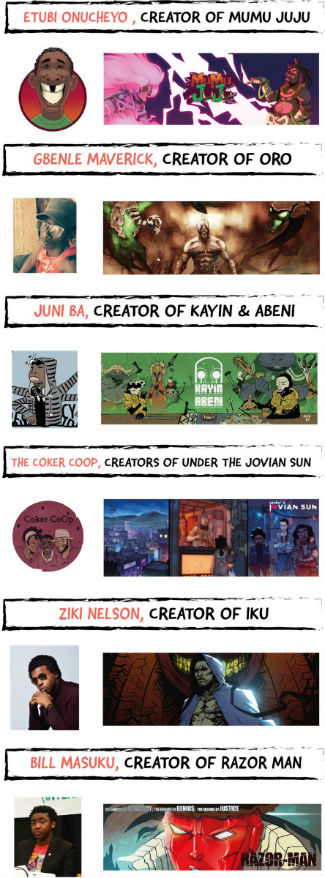 BF: Your ‘interviews with the creators’ segments are quite integral to the Kugali magazines. Why do you think it’s important to showcase the people behind the panels?
BF: Your ‘interviews with the creators’ segments are quite integral to the Kugali magazines. Why do you think it’s important to showcase the people behind the panels?
NELSON: It’s easy to forget that behind every great product are the sweat and tears of a real life human being, and we think it’s important that people are aware of this. Furthermore, Africa is a huge place, however, we often get lumped into one category. Therefore, even though Kugali is a Pan-African initiative, we want people to know that Africa isn’t some uniform entity and the interviews with the creators allow us to give readers a more in-depth perspective on the various cultures across the continent.
BF: Can you tell us what some of the featured creators have coming up next?
NELSON: We’re actually bringing out another anthology on the 19th of November. The only returning creators are Bill Masuku (Zimbabwe), who will be continuing his ongoing series Razorman, a political superhero thriller about a vigilante obsessed with eradicating corruption from his country; the Coker CoOp, who will be returning with part 2 of Under a Jovian Sun in the regular edition; and Juni Ba, who created Monkey Meat, set in the fantasy African city of Ktu, which is under threat of mysterious Djinns. They need a hero. A shame the only one available is too busy eating too much monkey meat to pay attention. Apart from Juni, Bill, and the Coker CoOp, we’ll be featuring a new lineup of artists and writers.
BF: What / who are some of your favourite comics and cartoonists?
NELSON: My favourite comics (and manga) include Preacher, Sandman and Berserk, so I’m very much obsessed with dark fantasy. As for cartoons, Full Metal Alchemist Brotherhood is my all time favourite, but Justice League and Dragon Ball Z will always have a special place in my heart.
BF: What advice would you give to aspiring creators trying to get their own projects off the ground?
NELSON: Easier said than done, but don’t conflate your sense of self worth with how people respond to your work; it will lead you down a dark path. Regardless of what people say about the work, that is no reflection on you as an individual and it just means you have room to improve.
You can follow Kugali on Twitter here. Their comics to date are available on their site here where Kugali Anthology 2 can also be bought from 19th November.
Interview by Ally Russell





